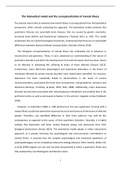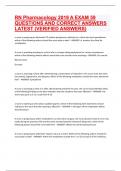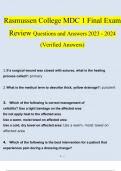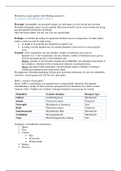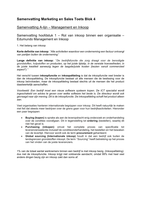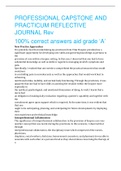Other
Abnormal Psychology: The biomedical model and the conceptualization of mental illness
- Module
- Abnormal Psychology
- Institution
- University Of The Highlands And Islands (UHI)
Abnormal psychology: A brief report examining how mental illness is conceptualized from the biomedical perspective, while critically evaluating said approach. Referencing style: APA
[Show more]
